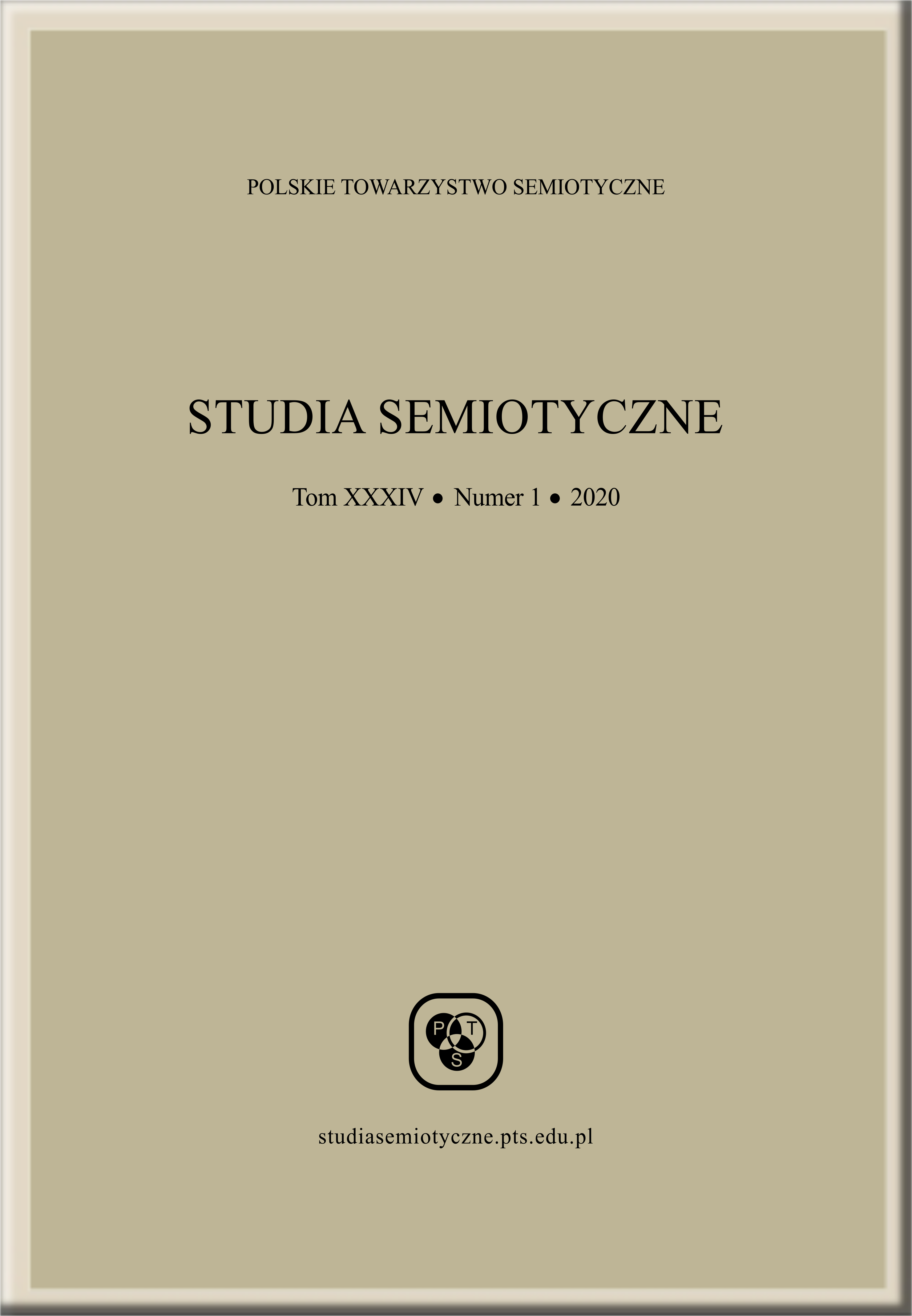Abstrakt
DOI: http://doi.org/10.26333/sts.xxxiv1.09
Gödel’s first incompleteness theorem is sometimes said to refute mechanism about the mind. §1 contains a discussion of mechanism. We look into its origins, motivations and commitments, both in general and with regard to the human mind, and ask about the place of modern computers and modern cognitive science within the general mechanistic paradigm. In §2 we give a sharp formulation of a mechanistic thesis about the mind in terms of the mathematical notion of computability. We present the argument from Gödel’s theorem against mechanism in terms of this formulation and raise two objections, one of which is known but is here given a more precise formulation, and the other is new and based on the discussion in §1.
Bibliografia
Anstey, P. (2000). Descartes’ Cardiology and Its Reception in English Physiology. In J. Schuster, S. Gaukroger, J. Sutton (Eds.), Descartes’ Natural Philosophy (pp. 420–444). London, New York: Routledge.
Ben-Yami, H. (2015). Descartes’ Philosophical Revolution: A Reassessment. London: Palgrave-Macmillan.
Bogen, J., Woodward, J. (1988). Saving the Phenomena. Philosophical Review, 97(3), 303–352.
Bowie, G. L. (1982). Lucas’ Number Is Finally Up. Journal of Philosophical Logic, 11(3), 279–285.
Cantor, G. (1890). Ueber Eine Elementare Frage Der Mannigfaltigketislehre. Jahresbericht Der Deutschen Mathematiker-Vereinigung, 1, 72–78.
Chomsky, N. (1957). Syntactic Structures. Berlin: Walter de Gruyter.
Chomsky, N. (1975). The Logical Structure of Linguistic Theory. Berlin: Springer Science+Business Media.
Cohen, H. F. (1984). Quantifying Music: The Science of Music at the First Stage of Scientific Revolution 1580–1650. Berlin: Springer Science & Business Media.
Corcoran, J., Frank, W., Maloney, M. (1974). String Theory. Journal of Symbolic Logic, 39(4), 625–637.
Cottingham, J. (1978). ‘A Brute to the Brutes?’: Descartes’ Treatment of Animals: Discussion. Philosophy, 53(206), 551–559.
Descartes, R. (1996). René Descartes: Meditations on First Philosophy: With Selections From the Objections and Replies (2nd ed.). Cambridge University Press.
Descartes, R. (2006). A Discourse on the Method of Correctly Conducting One’s Reason and Seeking Truth in the Sciences. Oxford University Press.
Duncan, W. D. (2017). Ontological Distinctions between Hardware and Software. Applied Ontology, 12(1), 5–32.
Fodor, J. A., Pylyshyn, Z. W. (2014). Minds Without Meanings: An Essay on the Content of Concepts. MIT Press.
Franks, J. (2010). Cantor’s Other Proofs That R Is Uncountable. Mathematics Magazine, 83(4), 283–289.
Fresco, N. (2014). Physical Computation and Cognitive Science. Springer.
Funkenstein, A. (1986). Theology and the Scientific Imagination From the Middle Ages to the Seventeenth Century. Princeton University Press.
Gardner, H. (1987). The Mind’s New Science: A History of the Cognitive Revolution. New York: Basic Books.
Gaukroger, S. (2002). Descartes’ System of Natural Philosophy. Cambridge University Press.
Gaukroger, S. (2007). The Emergence of a Scientific Culture: Science and the Shaping of Modernity 1210–1685. Oxford University Press UK.
Gaukroger, S. (2010). The Collapse of Mechanism and the Rise of Sensibility: Science and the Shaping of Modernity, 1680–1760. Oxford University Press.
Gaukroger, S., Schuster, J., Sutton, J. (2000). Descartes’ Natural Philosophy. London, New York: Routledge.
Gödel, K. (1953). Kurt Gödel: Collected Works. Oxford University Press.
Gödel, K. (1986). Kurt Gödel: Collected Works: Volume III: Unpublished Essays and Lectures. Oxford University Press.
Grodzinsky, Y., Santi, A. (2008). The Battle for Broca’s Region. Trends in Cognitive Sciences, 12(12), 474–480.
Gunderson, K. (1964). Descartes, La Mettrie, Language, and Machines. Philosophy, 39(149), 193–222.
Hauser, M. D., Chomsky, N., Tecumseh Fitch, W. (2002). The Faculty of Language: What Is It, Who Has It, and How Did It Evolve? Science, 298(5598), 1569–1579.
Lucas, J. R. (1961). Minds, Machines and Gödel. Philosophy, 36(137), 112–127.
McLaughlin, P. (2000). Force, Determination and Impact. In J. Schuster, S. Gaukroger, J. Sutton (Eds.), Descartes’ Natural Philosophy (pp. 81–112). London, New York: Routledge.
Miłkowski, M. (2013). Explaining the Computational Mind. MIT Press.
Papayannopoulos, P. (2020). Computing and Modelling: Analog vs. Analogue. Studies in History and Philosophy of Science Part A.
Penrose, R. (1989). The Emperor’s New Mind. Oxford University Press.
Penrose, R. (1994). Shadows of the Mind. Oxford University Press.
Pullum, G. K., Scholz, B. C. (2010). Recursion and the Infinitude Claim. Recursion in Human Language, 104, 113–38.
Putnam, H. (1960). Minds and Machines. In S. Hook (Ed.), Dimensions of Minds (pp. 138–164). New York University Press.
Putnam, H. (1963). Degree of Confirmation’ and Inductive Logic. In P. A. Schilpp (Ed.), The Philosophy of Rudolf Carnap (pp. 761–783). La Salle: Open Court.
Quine, W. V. (1940). Mathematical Logic. Harvard University Press.
Sepper, D. L. 2000. Figuring Things Out: Figurate Problem-Solving in the Early Descartes. In J. Schuster, S. Gaukroger, J. Sutton (Eds.), Descartes’ Natural Philosophy (pp. 228–248). London, New York: Routledge.
Shapiro, S. (1998). Incompleteness, Mechanism, and Optimism. Bulletin of Symbolic Logic, 4(3), 273–302.
Sieg, W. (2001). Calculations by Man and Machine: Conceptual Analysis. Reflections on the Foundations of Mathematics (Essays in Honor of Solomon Feferman), 15, 387–406.
Sieg, W. (2013). Gödel’s Philosophical Challenge (to Turing). In B. J. Copeland, C. J. Posy, O. Shagrir (Eds.), Computability: Gödel, Church, Turing, and Beyond (pp. 183–202). MIT Press.
Slezak, P. (1983). Descartes’s Diagonal Deduction. The British Journal for the Philosophy of Science, 34(1), 13–36.
Slezak, P. (1988). Was Descartes a Liar? Diagonal Doubt Defended. The British Journal for the Philosophy of Science, 39(3), 379–388.
Smith, B. C. (2002). The Foundations of Computing. In M. Scheutz (Ed.), Computationalism: New Directions (pp. 23–58). MIT Press.
Sorensen, R. A. (1986). Was Descartes’s Cogito a Diagonal Deduction? The British Journal for the Philosophy of Science, 37(3), 346–351.
Svejdar, V. (2008). Relatives of Robinson Arithmetic. In M. Peliš (Ed.), The Logica Yearbook (pp. 253–263). London: College Publications.
Tarski, A. (1956). Logic, Semantics, Metamathematics. Oxford: Clarendon Press.
Woodward, J. F. (2011). Data and Phenomena: A Restatement and Defense. Synthese, 182(1), 165–179.


